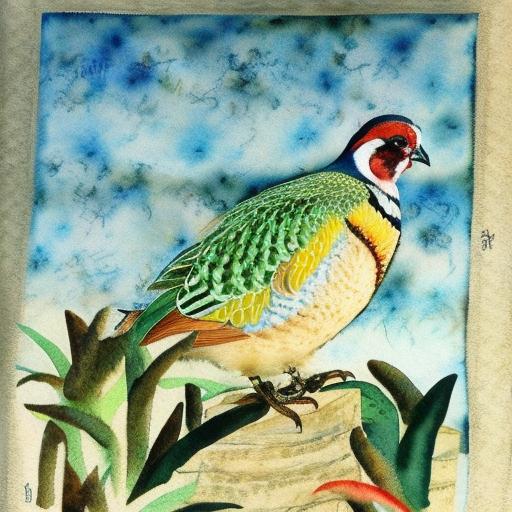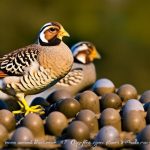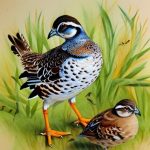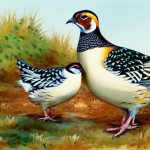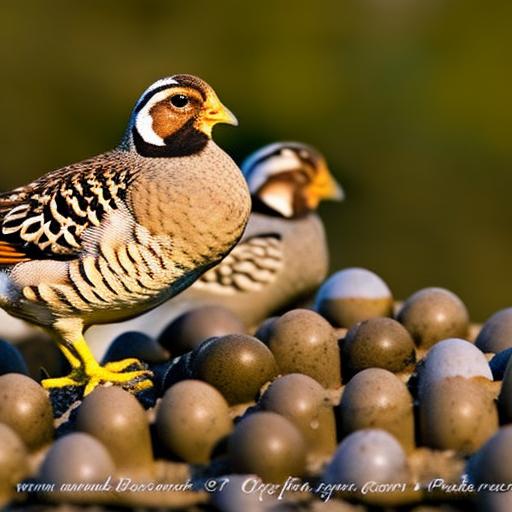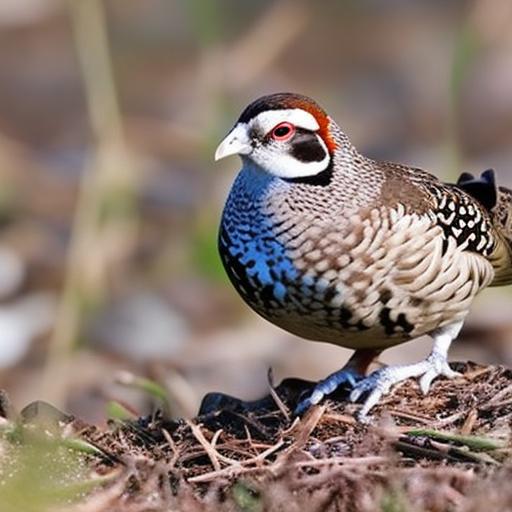King quails, also known as button quails, are small, ground-dwelling birds that are native to Australia and surrounding regions. They are popular among bird enthusiasts for their colorful plumage and unique personalities. King quails are known for their gentle nature and are relatively easy to care for, making them a popular choice for both novice and experienced bird keepers. These birds are also known for their distinctive call, which sounds like a series of “button” clicks, hence the name “button quail.” King quails are social birds and are often kept in pairs or small groups. They are also known for their active nature, constantly foraging and exploring their environment. In the wild, king quails feed on a variety of seeds, insects, and small invertebrates. In captivity, they can be fed a diet of commercial bird seed mix, supplemented with fresh fruits and vegetables. Overall, king quails are fascinating birds that make wonderful additions to any aviary or bird enthusiast’s collection.
Key Takeaways
- King quails are small, ground-dwelling birds native to Australia and are popular as pets and for their meat and eggs.
- King quails reach breeding age at around 10-12 weeks old, but it is important to consider their overall health and maturity before breeding.
- Factors affecting the breeding age of king quails include diet, environment, and genetics.
- Signs of maturity in king quails include physical changes such as coloration and behavior changes such as courtship displays.
- Breeding practices for king quails should include providing a suitable nesting area, proper diet, and monitoring for successful mating and egg-laying.
- Health considerations for breeding age king quails include ensuring proper nutrition, monitoring for signs of illness, and providing a clean and stress-free environment.
- Understanding the breeding age and practices for king quails is important for successful breeding and maintaining the health and well-being of the birds.
Understanding the Breeding Age of King Quails
King quails reach sexual maturity at around 6-8 weeks of age, although it is recommended to wait until they are at least 3-4 months old before allowing them to breed. This allows the birds to fully develop physically and mentally before taking on the responsibilities of breeding. Breeding too early can lead to health complications for the birds and their offspring. It is important to monitor the birds closely during this time to ensure they are healthy and ready for breeding. Additionally, it is important to consider the overall health and well-being of the birds before allowing them to breed. This includes providing a balanced diet, adequate living space, and proper environmental conditions.
Factors Affecting Breeding Age
Several factors can affect the breeding age of king quails. One of the most important factors is the overall health and condition of the birds. Birds that are malnourished or have underlying health issues may not reach sexual maturity at the expected age. It is important to provide a balanced diet that meets the nutritional needs of the birds to ensure they develop properly. Additionally, environmental factors such as temperature and lighting can also impact the breeding age of king quails. Birds that are kept in environments with inconsistent temperatures or inadequate lighting may experience delays in reaching sexual maturity. It is important to provide a stable and comfortable environment for the birds to thrive and reach their breeding age in a timely manner.
Signs of Maturity in King Quails
There are several signs that indicate a king quail has reached sexual maturity. One of the most obvious signs is the development of adult plumage. Male king quails will develop more vibrant and colorful plumage, while females will have a more subdued appearance. Additionally, mature male king quails will begin to exhibit courtship behaviors such as displaying their feathers and vocalizing to attract a mate. Female king quails will also display receptive behaviors such as crouching and vocalizing in response to the male’s advances. It is important to observe these behaviors closely to determine if the birds are ready for breeding. It is also important to note that not all birds will reach sexual maturity at the same time, so it is important to monitor each bird individually for signs of maturity.
Breeding Practices for King Quails
Breeding king quails can be a rewarding experience for bird enthusiasts, but it is important to approach the process with care and consideration for the well-being of the birds. When breeding king quails, it is important to provide a suitable nesting area for the birds to lay their eggs. This can be a simple box filled with soft nesting material such as straw or shredded paper. It is important to monitor the nesting area closely to ensure the eggs are being cared for properly. Additionally, it is important to provide a balanced diet for the breeding pair to ensure they have the necessary nutrients for producing healthy offspring. It is also important to provide a stress-free environment for the birds during the breeding process to ensure successful reproduction.
Health Considerations for Breeding Age King Quails
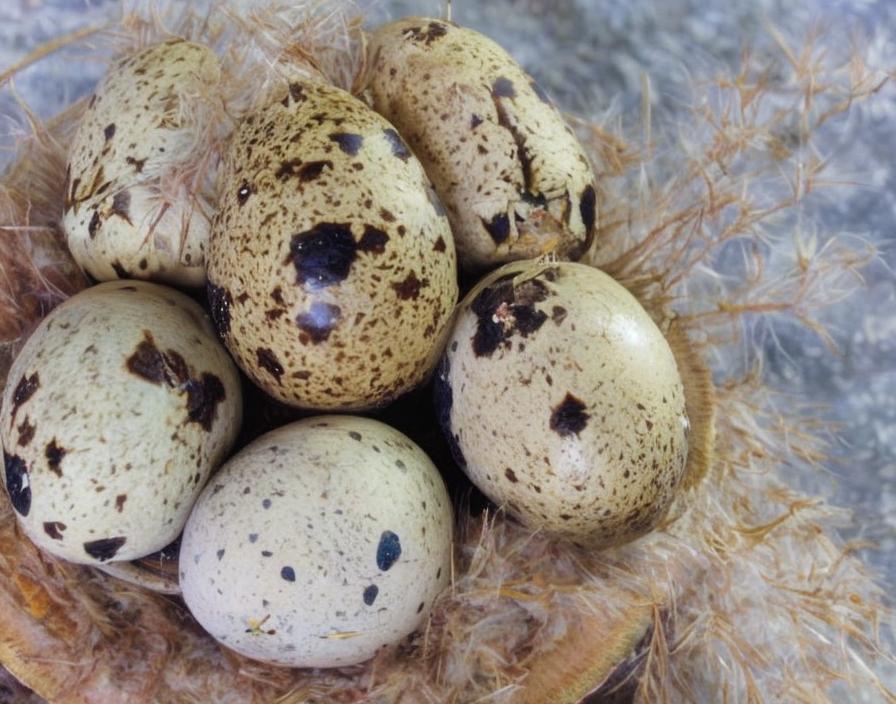
When breeding king quails, it is important to consider the health and well-being of the birds at all times. This includes providing a balanced diet that meets their nutritional needs, as well as regular veterinary check-ups to monitor their overall health. It is also important to provide a clean and comfortable living environment for the birds to reduce the risk of illness and disease. Additionally, it is important to monitor the birds closely during the breeding process to ensure they are handling the reproductive responsibilities well. Breeding can be a stressful time for birds, so it is important to provide a stress-free environment and monitor for any signs of distress or illness.
Conclusion and Next Steps
In conclusion, understanding the breeding age of king quails is essential for successful reproduction and maintaining the health and well-being of these fascinating birds. By providing a balanced diet, suitable living conditions, and monitoring the birds closely for signs of maturity, bird enthusiasts can ensure a successful breeding experience. It is also important to consider the overall health and well-being of the birds at all times, providing regular veterinary care and a stress-free environment for successful reproduction. Moving forward, bird enthusiasts should continue to monitor their king quails closely for signs of maturity and provide the necessary care and attention for successful breeding practices. With proper care and consideration, breeding king quails can be a rewarding experience for both the birds and their caretakers.
If you’re interested in learning more about the breeding age of king quails, you might also want to check out this informative article on how long it takes for chicken eggs to hatch naturally. Understanding the incubation period and hatching process can provide valuable insights into the breeding and reproductive behaviors of various poultry species.
FAQs
What is the breeding age for king quails?
King quails reach sexual maturity at around 8-10 weeks of age, at which point they are able to breed.
At what age should king quails be bred?
It is recommended to wait until king quails are at least 12 weeks old before allowing them to breed to ensure they are fully mature and healthy.
How can I determine the breeding age of my king quails?
You can determine the breeding age of your king quails by observing their behavior and physical development. Once they reach 8-10 weeks of age, they may start displaying mating behaviors and become more vocal.
What are the risks of breeding king quails too early?
Breeding king quails too early can lead to health issues for the birds and their offspring. It is important to wait until they are fully mature to ensure the health and well-being of the birds and their offspring.
How can I ensure the health of breeding king quails?
To ensure the health of breeding king quails, provide them with a balanced diet, clean water, and a suitable breeding environment. Regular veterinary check-ups and monitoring their behavior and physical condition are also important.
Meet Walter, the feathered-friend fanatic of Florida! Nestled in the sunshine state, Walter struts through life with his feathered companions, clucking his way to happiness. With a coop that’s fancier than a five-star hotel, he’s the Don Juan of the chicken world. When he’s not teaching his hens to do the cha-cha, you’ll find him in a heated debate with his prized rooster, Sir Clucks-a-Lot. Walter’s poultry passion is no yolk; he’s the sunny-side-up guy you never knew you needed in your flock of friends!

